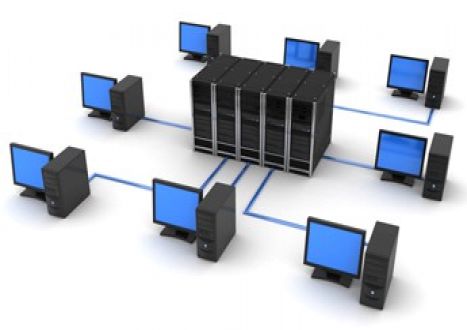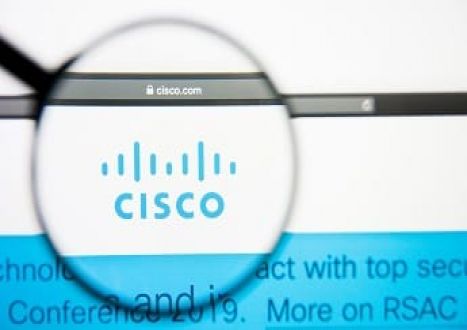- Home
- Video Courses
- Certifications
- 300-730: Implementing Secure Solutions with Virtual Private Networks (SVPN 300-730) Dumps


300-730: Implementing Secure Solutions with Virtual Private Networks (SVPN 300-730) Certification Video Training Course
300-730: Implementing Secure Solutions with Virtual Private Networks (SVPN 300-730) Certification Video Training Course includes 42 Lectures which proven in-depth knowledge on all key concepts of the exam. Pass your exam easily and learn everything you need with our 300-730: Implementing Secure Solutions with Virtual Private Networks (SVPN 300-730) Certification Training Video Course.
Curriculum for Cisco SVPN 300-730 Certification Video Training Course




300-730: Implementing Secure Solutions with Virtual Private Networks (SVPN 300-730) Certification Video Training Course Info:
The Complete Course from ExamCollection industry leading experts to help you prepare and provides the full 360 solution for self prep including 300-730: Implementing Secure Solutions with Virtual Private Networks (SVPN 300-730) Certification Video Training Course, Practice Test Questions and Answers, Study Guide & Exam Dumps.
CCNP Security: In-Depth 300-730 SVPN Training & Exam Preparation
Course Overview
Introduction to CCNP Security 300-730 SVPN
The CCNP Security 300-730 SVPN exam is one of the most important milestones for IT professionals who want to validate their ability to design, configure, and troubleshoot secure VPN solutions. This training course is built to not only prepare you for the exam but also to give you a deep understanding of the technologies that form the backbone of secure enterprise communications. You will be guided through a journey that begins with the fundamentals of VPNs and advances toward highly specialized solutions using Cisco technologies, all with a focus on practical, real-world scenarios.
The Purpose of the Course
The primary purpose of this course is to provide you with both the theoretical background and hands-on configuration experience necessary to master the topics covered in the exam. Beyond passing the certification test, the course is designed to strengthen your ability to implement VPN solutions that meet enterprise security requirements, align with industry best practices, and scale as organizational needs grow. You will learn not just what to configure, but why specific design decisions matter in a security architecture.
Importance of Secure VPN Knowledge
In today’s hyperconnected world, secure communications are not optional but essential. Remote workforces, cloud adoption, and distributed infrastructure demand that organizations secure data in motion, prevent unauthorized access, and guarantee confidentiality and integrity. Mastering VPN technologies empowers you to provide a secure, reliable, and flexible network environment. This training course will give you a strong foundation in IPSec, DMVPN, FlexVPN, GETVPN, and SSL VPN, ensuring you are ready to face modern security challenges head-on.
Who Should Take This Course
This course is ideal for network security engineers, security analysts, and anyone involved in designing or supporting secure network solutions. It is also highly relevant for system administrators, consultants, and solution architects who need to secure communications between remote users, branch offices, data centers, and cloud resources. Even if you are not pursuing certification but are tasked with deploying VPN solutions in a professional environment, the material in this course will serve as an invaluable reference.
Learning Methodology
The course uses a mix of conceptual explanations, practical demonstrations, and guided configurations to ensure that every learner can follow along regardless of prior exposure. Complex topics are broken into digestible sections, and configuration examples are designed to be reproducible in a lab environment. The methodology emphasizes repetition, scenario-based practice, and progressive difficulty so that your confidence grows steadily throughout the training.
Expected Outcomes
By the end of this course, you will have developed the skills to confidently deploy site-to-site VPNs, remote access VPNs, and advanced solutions such as DMVPN Phase 3 and GETVPN in complex topologies. You will also be comfortable troubleshooting common issues, interpreting debug outputs, and verifying security parameters. These abilities will make you a valuable asset to your team and prepare you for both the 300-730 SVPN exam and real-world network challenges.
Industry Relevance
The demand for security-certified professionals continues to rise as businesses invest in securing their data and compliance requirements become stricter. CCNP Security is recognized globally as a benchmark for advanced security knowledge. Completing this course can significantly enhance your career prospects, opening doors to roles such as security engineer, network security consultant, and infrastructure architect.
Flexibility and Self-Paced Learning
While the course is comprehensive, it is also designed with flexibility in mind. Each module can be consumed at your own pace, allowing you to pause, review, and practice as necessary. Real-world scenarios are provided so you can test your knowledge in a lab environment before deploying solutions in production networks.
Modules
Foundation of VPN Technologies
The first module explores the fundamental principles of virtual private networks, including encryption, tunneling protocols, and key exchange mechanisms. It builds a conceptual framework that will make the rest of the course more intuitive. You will learn about symmetric and asymmetric encryption, hashing, and how these cryptographic tools come together to form secure tunnels. The module also explores the differences between site-to-site and remote access VPNs, highlighting where each is most appropriate.
IPSec Fundamentals
This module dives deep into IPSec architecture, including Internet Key Exchange (IKEv1 and IKEv2), Security Associations, and the two main IPSec modes—tunnel and transport. You will explore phase 1 and phase 2 negotiations step by step, examining how encryption keys are established and refreshed. Practical configurations will allow you to implement IPSec tunnels on Cisco routers and firewalls and verify that security associations are established correctly.
FlexVPN and IKEv2 Implementation
FlexVPN is a modern, scalable VPN solution based on IKEv2, and this module provides a complete walkthrough of its deployment. You will configure hub-and-spoke and spoke-to-spoke topologies and integrate authentication methods such as pre-shared keys and digital certificates. Troubleshooting labs will help you become comfortable with common FlexVPN issues, preparing you for scenarios that you may face in production environments.
DMVPN and Dynamic Spoke Connectivity
The Dynamic Multipoint VPN module is designed to give you an in-depth understanding of how DMVPN enables dynamic spoke-to-spoke connectivity. You will learn about multipoint GRE tunnels, NHRP, and routing protocol considerations. Each phase of DMVPN—Phase 1, Phase 2, and Phase 3—is explored with practical configurations and packet captures that demonstrate what happens behind the scenes.
SSL VPN and Remote Access Solutions
In this module, you will implement client-based and clientless SSL VPNs on Cisco ASA and Cisco AnyConnect. You will explore portal customization, group policies, and access control, as well as learn how to verify user authentication and troubleshoot login issues. This section is critical for securing remote users who connect from unmanaged devices or external networks.
GETVPN for Enterprise WAN Security
Group Encrypted Transport VPN is covered in a dedicated module that examines how to secure communications across a private WAN without building point-to-point tunnels. You will explore the role of the key server, group members, and the rekey process. Use cases are demonstrated where GETVPN is the most efficient solution for large-scale deployments.
Advanced Troubleshooting and Monitoring
No training is complete without a focus on troubleshooting. This module equips you with the knowledge to debug IPSec negotiations, inspect IKE exchanges, and resolve common misconfigurations. You will practice reading logs, interpreting syslog messages, and using Cisco commands to isolate issues quickly. Network monitoring best practices and the integration of Cisco security tools are also covered.
Exam Preparation and Practice Scenarios
Finally, the course provides a comprehensive review module that consolidates everything learned. You will work through practice scenarios that closely resemble exam questions, test your configuration skills in a timed environment, and receive guidance on exam strategy. Tips on time management, identifying key topics, and avoiding common mistakes will help you approach the 300-730 SVPN exam with confidence.
Course Requirements
Technical Prerequisites
Before enrolling in this course, you should have a strong foundation in networking concepts. Familiarity with TCP/IP, subnetting, routing protocols such as OSPF and EIGRP, and basic access control lists will help you follow along without difficulty. The course is designed for those who already hold a CCNA-level understanding of networking or equivalent practical experience. If you are completely new to networking, you may find the material challenging because the training assumes that you can read and interpret routing tables, configure IP addresses, and understand how data flows between network devices.
Knowledge of Security Fundamentals
It is highly recommended that learners possess a basic understanding of security concepts such as encryption, authentication, and authorization. Knowing how firewalls function, what intrusion prevention systems do, and the difference between symmetric and asymmetric encryption will make it easier to grasp advanced topics like IPSec key exchanges and SSL handshakes. The course provides explanations where needed, but prior familiarity will speed up comprehension and allow you to focus on applying the knowledge rather than memorizing terms.
Familiarity with Cisco Devices and CLI
Since this course is centered around Cisco technologies, you should be comfortable using the Cisco command-line interface. Experience configuring routers and firewalls, creating VLANs, and working with interface-level commands will help you move quickly through the practical labs. If you have completed any Cisco associate-level training or have experience in a production network environment, you are likely already prepared for the command syntax and device behavior demonstrated in this course.
Hardware and Software Requirements
To maximize your learning experience, you will need a reliable environment in which to practice configurations. This may include access to physical Cisco routers, switches, and ASA firewalls, or a virtual lab setup using tools like Cisco VIRL, GNS3, or EVE-NG. A computer with sufficient processing power and memory is essential to run network simulation software smoothly, especially when working with topologies that include multiple devices. A stable internet connection is also required to access the online course materials, video demonstrations, and any downloadable lab guides.
Recommended Lab Setup
The ideal lab environment consists of at least three routers to simulate hub-and-spoke topologies, an ASA firewall for SSL VPN practice, and an authentication server such as Cisco ISE or a lightweight RADIUS server for AAA integration. If physical hardware is not available, a virtual lab can emulate most of these devices with nearly identical functionality. Creating a hands-on lab is not just a recommendation but a critical component of the learning process because VPN technologies are best understood through direct configuration and verification.
Software Images and Licensing
Some VPN features require specific IOS images or security licenses. Ensure that you have access to appropriate images that support DMVPN, FlexVPN, and GETVPN features. Cisco ASA images should also support AnyConnect for SSL VPN practice. The course will guide you on verifying your device capabilities before starting each module, preventing time wasted on incompatible configurations.
Time Commitment and Learning Pace
The course is extensive and requires consistent study. You should be prepared to dedicate several hours per week to watching lectures, performing lab exercises, and reviewing documentation. While the content can be consumed at your own pace, regular practice is crucial to retaining the information. Setting aside structured study blocks will help you stay on track and make steady progress toward certification.
Dedication to Hands-On Practice
VPN configuration can only be mastered through repetition. Reading about IPSec tunnels or watching someone configure DMVPN is not enough — you must build, test, and troubleshoot these technologies yourself. This course provides step-by-step lab guides and encourages you to replicate the demonstrations. Learners who commit to hands-on practice often perform better on the exam and in real-world roles.
Troubleshooting Mindset
An important requirement for this course is a willingness to approach problems systematically. VPN issues often involve multiple devices, protocols, and layers of security, so patience and persistence are key. You should be ready to analyze logs, run debug commands, and trace packets when things do not work as expected. This investigative approach will turn mistakes into powerful learning moments and prepare you for troubleshooting in production environments.
Comfort with Cryptographic Concepts
While the course explains cryptography concepts in detail, some familiarity with hashing algorithms, encryption keys, and digital certificates will be helpful. You will work with PKI, pre-shared keys, and public key infrastructure concepts, so understanding how certificates are signed, validated, and revoked will make these sections easier to grasp.
Soft Skills and Professional Readiness
Although the focus is technical, having strong communication skills will help you get the most out of this course. Being able to explain network security concepts to peers, write clear documentation, and justify design decisions is a crucial part of being a network security professional. Learners who develop these skills alongside technical expertise are better prepared for leadership roles.
Self-Motivation and Problem-Solving Attitude
This course is designed for professionals who are self-motivated and willing to explore beyond the lecture material. VPN technologies evolve, and security best practices are constantly updated. Staying curious and willing to research new RFCs, Cisco documentation, and security advisories will make you a well-rounded engineer long after you complete the course.
Certification Exam Registration and Policies
Before starting the course, you should review Cisco’s official guidelines for registering and scheduling the 300-730 SVPN exam. Understanding the exam format, number of questions, time limits, and retake policy will help you plan your preparation timeline. Cisco updates its certification tracks periodically, so it is recommended that you confirm the current exam blueprint before starting your studies.
Mindset for Success
Success in this course is not just about technical knowledge but about building confidence. Approach each topic with the mindset of a problem solver rather than a memorizer. Engage with the material actively by pausing lectures, experimenting with configurations, and predicting outcomes before verifying results. This habit will train you to think like a network security engineer rather than just a test taker.
Community and Peer Learning
Although the course is self-paced, networking with peers can accelerate learning. Joining online study groups, Cisco forums, or professional communities can expose you to diverse scenarios and troubleshooting techniques. Collaborating with others allows you to compare configurations, exchange ideas, and stay motivated throughout the learning process.
Staying Updated with Industry Trends
Security is a rapidly evolving field. Threat actors are constantly finding new ways to exploit vulnerabilities, and vendors like Cisco are frequently releasing software updates, patches, and new features. Learners are encouraged to follow Cisco blogs, security advisories, and technology announcements so that the knowledge gained in this course remains relevant even after the exam is complete.
Discipline and Study Routine
Consistency is key to mastering complex topics. Set a realistic schedule that includes time for watching video content, reading supplementary material, and performing lab exercises. Break your study sessions into focused intervals with short breaks to improve retention and prevent fatigue. Having a clear study plan before starting will keep you accountable and ensure you cover every topic thoroughly.
Focus on Real-World Application
One of the major requirements is to approach the course not just as an academic exercise but as preparation for real network environments. Every configuration demonstrated has been chosen because it is used in actual enterprise deployments. Take the time to think about how each VPN technology could apply to the networks you support or intend to manage. This perspective will help you connect the theoretical concepts to tangible solutions.
Course Description
A Comprehensive and Practical Learning Journey
This course has been carefully designed to offer a complete exploration of secure VPN solutions as required for the Cisco CCNP Security 300-730 SVPN certification. Unlike a simple test-prep bootcamp, it serves as a robust learning path that blends theory, configuration practice, and troubleshooting experience. The goal is to ensure you not only pass the exam but also feel confident designing and implementing VPN solutions in real-world enterprise networks.
Focus on Core VPN Technologies
The curriculum covers IPSec, FlexVPN, DMVPN, GETVPN, and SSL VPNs in detail. Each technology is presented in a way that helps you understand its architecture, advantages, and limitations. Rather than memorizing commands, you will learn why each command is used, how it affects security associations, and how different components interact to create a secure tunnel. This approach equips you with the ability to adapt to new scenarios beyond the scope of the exam.
Real-World Scenario-Based Training
Every concept taught in the course is supported by scenario-based examples. You will configure VPNs to connect branch offices to headquarters, provide secure remote access for teleworkers, and protect traffic across private WAN links. These scenarios mirror the challenges faced by network security engineers in production environments. By practicing with realistic topologies, you gain the confidence to apply your knowledge when stakes are high.
Layered Learning Experience
The course is structured to move from simple to complex. It starts with foundational VPN concepts and gradually introduces more advanced topics such as dynamic spoke-to-spoke communication, key server rekey mechanisms, and certificate-based authentication. Each section builds on the previous one, reinforcing your understanding and reducing the risk of cognitive overload. This layered approach ensures you are always ready for the next level of difficulty.
Emphasis on Troubleshooting and Verification
Configuring a VPN is only half the battle — ensuring that it is working securely and efficiently is equally critical. This course dedicates significant time to troubleshooting strategies, debug commands, and verification techniques. You will learn to read packet captures, interpret error logs, and resolve common misconfigurations that could disrupt connectivity or weaken security.
Coverage of Cisco Best Practices
Throughout the course, you will learn Cisco’s recommended best practices for secure VPN deployment. This includes strong encryption settings, efficient key lifetimes, proper placement of crypto ACLs, and use of scalable technologies for large environments. By following these practices, you will be able to build VPN solutions that meet both technical and compliance requirements.
Hands-On Lab Guides
Each topic comes with a step-by-step lab exercise that you can reproduce in your own lab environment. These labs encourage experimentation so you can observe what happens when configurations are incorrect or incomplete. This hands-on approach transforms theoretical knowledge into practical skill.
Integration with Other Security Technologies
VPNs do not exist in isolation — they often integrate with authentication servers, firewalls, and network monitoring systems. This course introduces you to AAA integration, identity-based policies, and logging configurations so you can see how VPN solutions fit into the broader security architecture.
Flexibility for Different Learning Styles
The course is designed to be adaptable whether you are a visual learner, a hands-on practitioner, or someone who prefers conceptual discussion. Video lectures, configuration demonstrations, and detailed explanations work together to accommodate different preferences. This flexibility allows you to learn at your own pace while still achieving mastery.
Preparation for the 300-730 Exam
While the emphasis is on real-world applicability, this course does not neglect exam preparation. Practice scenarios and knowledge checks are included to help you become familiar with the types of questions you might encounter on the official exam. You will also receive strategies for managing time during the test and approaching multiple-choice questions with confidence.
Who This Course Is For
Network Security Engineers
This course is designed primarily for network security engineers who are responsible for building and maintaining VPN solutions within an enterprise. If you spend your day configuring routers, troubleshooting firewalls, or securing communications between sites, this training will strengthen your ability to deliver robust solutions that protect sensitive data.
IT Professionals Pursuing Certification
If your goal is to achieve CCNP Security certification, this course provides a direct path toward passing the 300-730 SVPN exam. It aligns with Cisco’s official exam blueprint and ensures you cover every objective in depth. Learners who complete this course will be ready to register for the exam with confidence.
Network Administrators and System Engineers
Even if your title is not “security engineer,” you may still be tasked with configuring VPNs for remote access or branch connectivity. Network administrators and system engineers who want to deepen their understanding of VPN technologies will find this course valuable. It will help you transition from basic configurations to enterprise-grade solutions.
IT Consultants and Solution Architects
Consultants and architects responsible for designing network infrastructure can benefit greatly from this course. It will help you make informed decisions about which VPN technologies to recommend, how to scale them for growth, and how to integrate them with other security controls. The course provides you with a strong technical foundation to support strategic planning and implementation.
Professionals Transitioning into Security Roles
For IT professionals who are moving into cybersecurity from other domains, this course serves as a bridge to understanding one of the most critical areas of network security. By learning VPN technologies thoroughly, you will be able to contribute to secure network design projects and incident response efforts.
Students and Career Starters
Students who are pursuing a degree or diploma in computer networking or cybersecurity will find this course to be an excellent supplement to their academic studies. It provides a practical perspective that is often missing in classroom environments and prepares them for entry-level roles in network security.
Experienced Engineers Seeking Refreshers
Even seasoned engineers can use this course as a refresher to stay updated on Cisco’s current VPN technologies. Networking and security evolve constantly, and this training ensures that you are not relying on outdated knowledge or obsolete protocols.
Organizations Seeking Team Training
Enterprises that want to upskill their network teams can use this course as part of their internal training program. It ensures consistency of knowledge across engineers and helps teams adopt Cisco-recommended best practices. Investing in such training reduces downtime and improves overall security posture.
Learners Who Prefer Structured Guidance
If you have been trying to study for the 300-730 SVPN exam using scattered resources and feel overwhelmed, this course is for you. It provides a structured, logical progression of topics that saves you time and keeps you focused. The guided approach prevents common pitfalls such as skipping critical topics or overemphasizing less relevant material.
Global Learners and Remote Professionals
Because the course is online and self-paced, it is accessible to learners from around the world. Whether you are working remotely or in an office environment, you can fit the training into your schedule. This makes it ideal for professionals who balance work responsibilities with certification goals.
Assessments and Practice
Continuous Knowledge Checks
Throughout the course, you will encounter short knowledge checks that reinforce key concepts before moving forward. These checkpoints are designed to encourage active recall, helping you remember commands, configuration syntax, and theoretical principles. They also allow you to evaluate whether you are ready to progress to more complex topics or if you should revisit the previous material for deeper understanding.
Hands-On Lab Challenges
Each major module ends with a lab challenge that requires you to configure VPN technologies without following step-by-step instructions. These challenges replicate real-world troubleshooting scenarios, forcing you to think critically and apply what you have learned. For example, you might be tasked with bringing up a site-to-site IPSec tunnel where one peer has an incorrect pre-shared key, or debugging a FlexVPN topology where one spoke fails to register with the hub.
Simulated Exam Environment
To prepare you for the actual Cisco 300-730 SVPN exam, this course provides a simulated exam experience. Timed practice tests with multiple-choice questions, drag-and-drop exercises, and scenario-based questions will mirror the format of the official exam. Completing these simulations under time pressure trains you to manage pacing and remain calm during the real test.
Debugging and Troubleshooting Scenarios
Troubleshooting is a crucial skill for any security engineer, and this course integrates it into every stage of learning. You will be presented with broken topologies where your job is to isolate the issue using show commands, debug outputs, and logical deduction. These exercises not only prepare you for the exam’s troubleshooting elements but also for the unpredictable challenges you will face in production networks.
Capstone Project
Building a Complete Secure Network
As a final step, you will design and implement a full enterprise VPN solution from the ground up. This capstone project includes deploying a DMVPN hub-and-spoke network with spoke-to-spoke communication, integrating AAA for authentication, and enabling SSL VPN access for remote users. You will also configure GETVPN for private WAN encryption and implement monitoring to verify performance and reliability.
Documentation and Reporting
Part of the capstone project involves writing professional documentation of your network design, including topology diagrams, configuration excerpts, and a brief explanation of your design decisions. This exercise helps you practice one of the most overlooked but critical skills in network engineering — communicating your solutions clearly to colleagues, management, or clients.
Presentation of Findings
Learners are encouraged to present their final project to peers or mentors, simulating a real-world design review. Being able to justify why you chose certain encryption algorithms, routing methods, and key lifetimes strengthens your ability to defend your design in front of stakeholders.
Career and Professional Growth
Preparing for the Exam Day
As your exam date approaches, you will receive guidance on creating a final revision plan. This includes reviewing key configurations, memorizing critical command syntax, and practicing time management techniques. Strategies such as flagging difficult questions for review, eliminating incorrect answers, and staying calm under pressure will help you maximize your score.
Building Confidence in Real-World Scenarios
Beyond certification, the knowledge gained from this course will allow you to operate confidently in production environments. You will be able to configure VPNs quickly, troubleshoot outages with precision, and advise management on secure design practices. This confidence translates directly into professional credibility.
Career Opportunities After Completion
Earning the CCNP Security 300-730 SVPN certification and mastering VPN technologies can lead to numerous career opportunities. You may qualify for roles such as network security engineer, security operations center (SOC) specialist, infrastructure consultant, or network architect. These positions often command higher salaries and offer opportunities to work on challenging, high-impact projects.
Industry Recognition and Credibility
Cisco certifications are globally respected, and completing this training demonstrates your commitment to professional excellence. Employers, clients, and colleagues will recognize you as someone who possesses specialized expertise in secure network design and implementation. This recognition can lead to leadership opportunities or roles in strategic decision-making.
Post-Course Recommendations
Continuing Education
The world of network security does not stand still. After completing this course, it is recommended that you continue learning by exploring related areas such as Cisco Firepower Threat Defense (FTD), Cisco ISE for identity services, or advanced SD-WAN security. These topics will complement your VPN knowledge and further solidify your role as a security expert.
Staying Current with Technology Updates
VPN protocols and Cisco IOS features evolve, and staying current is essential to maintaining your expertise. Make it a habit to read Cisco release notes, security advisories, and industry whitepapers. Participate in Cisco Live events or online webinars to learn about new features and best practices.
Building a Professional Lab
Even after the course, maintaining a home or virtual lab allows you to experiment with new features, reproduce customer issues, and practice upgrades before rolling them into production. Your lab becomes your personal training ground and a powerful tool for staying sharp.
Joining Professional Communities
Engage with professional forums, LinkedIn groups, and security communities where engineers discuss VPN issues, share configurations, and exchange troubleshooting tips. Being part of these networks exposes you to real-world cases that keep your problem-solving skills sharp.
Mentoring and Knowledge Sharing
Once you gain confidence, consider mentoring junior engineers or colleagues who are beginning their journey into network security. Teaching others is one of the most effective ways to deepen your own knowledge and build a reputation as a subject matter expert.
Planning the Next Certification Step
After completing the CCNP Security SVPN exam, you may wish to pursue other CCNP Security concentration exams to earn the full CCNP Security certification or progress toward the Cisco CCIE Security certification. This course lays an excellent foundation for those higher-level studies.
Student Feedback
Similar Cisco Video Courses

























































Only Registered Members Can Download VCE Files or View Training Courses
Please fill out your email address below in order to Download VCE files or view Training Courses. Registration is Free and Easy - you simply need to provide an email address.
- Trusted By 1.2M IT Certification Candidates Every Month
- VCE Files Simulate Real Exam Environment
- Instant Download After Registration.
Log into your ExamCollection Account
Please Log In to download VCE file or view Training Course
Only registered Examcollection.com members can download vce files or view training courses.




